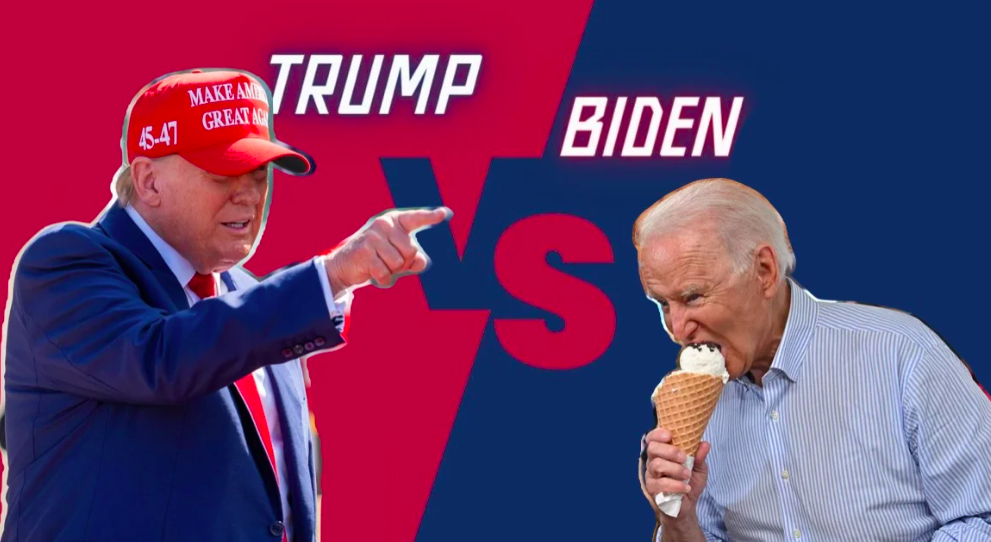Media Bias Alert: CNN Pushes for Social Media Censorship?

n an alarming move raising questions about media bias and free speech, CNN has reportedly contacted social media companies to urge the censorship of conservative media during the live presidential debate. This revelation has sparked a fierce backlash from conservative figures and organizations, highlighting the ongoing battle over media influence and political discourse in America.
The Allegations
The controversy erupted when Tim Pool, a prominent political commentator, reported that CNN had reached out to major social media platforms with requests to limit the reach of conservative media content during the live debate. According to Pool, the network’s alleged actions represent a blatant attempt to control the narrative and suppress dissenting voices. “It’s an unprecedented step in a supposedly free society,” Pool remarked, emphasizing the potential dangers of such media manipulation.
Reaction from Conservative Circles
Conservative figures swiftly condemned CNN’s actions. A senior official from former President Donald Trump’s campaign expressed outrage over the alleged censorship efforts. “This is a direct attack on the principles of free speech and a free press,” the official stated, adding that CNN’s actions are indicative of a broader strategy to undermine conservative viewpoints.
The Trump campaign’s criticisms are not without merit. During a recent interview on Fox News, the campaign official accused CNN of cutting off a Trump supporter mid-interview, suggesting that the network is actively working to censor conservative opinions. “CNN is more interested in pushing their narrative than in allowing a fair and open debate,” the official argued, reflecting a growing sentiment among conservatives that mainstream media outlets are biased against them.
Broader Implications for Free Speech
The implications of CNN’s alleged actions are profound. If true, they represent a concerted effort by a major news organization to influence the outcome of a political debate by silencing opposing viewpoints. This raises critical questions about the role of media in a democratic society and the extent to which media organizations should be allowed to control the flow of information.
Free speech advocates have also voiced their concerns. The principle of a free press is foundational to American democracy, and any attempts to curtail it, especially by influential media outlets, must be scrutinized and challenged. As the debate over media bias intensifies, the need for transparency and accountability in journalism becomes even more paramount.
The Role of Social Media
Social media platforms, which have become crucial arenas for political discourse, are also at the center of this controversy. These platforms are often accused of harboring biases and implementing policies that disproportionately affect conservative voices. CNN’s alleged request for censorship during the debate amplifies these concerns, suggesting that major media and tech companies may be colluding to shape public opinion.
Elon Musk, the CEO of Tesla and a vocal advocate for free speech on social media, has previously criticized these platforms for their perceived bias. “It’s vital that social media remains a space for open dialogue and diverse opinions,” Musk has asserted, highlighting the importance of resisting any efforts to censor political speech.
Historical Context and Media Ethics
Historically, the media has played a critical role in shaping political narratives. However, the ethical boundaries of journalism have come under scrutiny in recent years. The alleged actions of CNN, if verified, would mark a significant deviation from traditional journalistic standards, which prioritize impartiality and fairness.
The Society of Professional Journalists’ Code of Ethics emphasizes the need for journalists to “seek truth and report it” while avoiding conflicts of interest and bias. Any attempt to censor opposing viewpoints, particularly during a crucial political event like a presidential debate, undermines these ethical principles and erodes public trust in the media.
A Call for Accountability
In light of these allegations, there is a growing call for accountability and transparency within the media industry. Conservative commentators and organizations are urging CNN to disclose the nature and extent of their communications with social media companies. They argue that the public has a right to know whether media organizations are engaging in practices that could influence the democratic process.
Furthermore, policymakers and regulatory bodies may need to consider measures to ensure that media and tech companies adhere to principles of free speech and fair play. The integrity of the democratic process depends on a free and open exchange of ideas, untainted by censorship or bias.
Conclusion
The allegations against CNN highlight a critical issue in contemporary American politics: the power of media to shape public discourse and the potential dangers of media bias. As the debate over free speech and media ethics continues, it is essential to uphold the principles of transparency, accountability, and fairness. The public deserves a media landscape that respects diverse viewpoints and fosters genuine dialogue, rather than one that seeks to control and censor the narrative.
